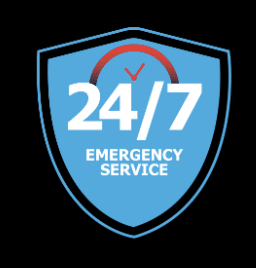Air Filter vs. Air Purifier—Key Differences

If you’ve ever wondered whether an air filter or an air purifier is the better choice, you’re not alone—plenty of people assume they do the same thing. The truth is, while they both improve air quality, they tackle the job in very different ways. Here’s what the pros at A Plus Heating & AC have to say about it, so you can get the best air filtration system installation for your home or business.
What is an Air Filter?
An air filter is a built-in part of your HVAC system designed to trap dust, dirt, pollen, and other airborne particles as air flows through your home or business. It’s the first line of defense against everyday contaminants, preventing them from recirculating through your vents.
Most air filters are made from fiberglass or pleated fabric, acting as a physical barrier that catches pollutants before they reach your HVAC components—or worse, your lungs. Basic filters improve system efficiency, while high-efficiency HEPA filters go a step further, capturing even finer particles.
Pros:
- Reduces dust buildup and improves air quality
- Helps extend the life of your HVAC system
- Affordable and easy to replace
Cons:
- Doesn’t remove microscopic pollutants like bacteria or smoke
- Needs regular replacement to stay effective
- Can reduce system efficiency if clogged
What is an Air Purifier?
An air purifier is a separate device or an integrated system designed to remove a wide range of airborne contaminants, including bacteria, viruses, smoke, and even odors. Unlike standard air filters, which trap larger particles, air purifiers work by actively neutralizing microscopic pollutants. These devices use various technologies, such as HEPA filtration, activated carbon, UV-C light, or ionization, to clean the air. Some models capture pollutants, while others destroy them at a molecular level.
Pros:
- Removes bacteria, viruses, and other microscopic pollutants
- Reduces odors from pets, smoke, and cooking
- Ideal for individuals with allergies, asthma, or respiratory sensitivities
Cons:
- Does not replace an air filter for HVAC efficiency
- Some models require regular upkeep, like replacing UV bulbs or cleaning filters
- Higher upfront cost than standard air filters
MERV Ratings: What They Mean for Air Quality
Minimum Efficiency Reporting Value (MERV) ratings measure how effectively an air filter captures particles. This is an important air quality rating for both air filters and purifiers. The scale runs from 1 to 16—higher numbers mean better filtration.
- MERV 1-4: Basic dust and pollen removal, common in cheap fiberglass filters.
- MERV 5-8: Better at trapping mold spores and pet dander, standard in residential HVAC systems.
- MERV 9-12: Captures finer particles like smoke and bacteria—great for those with allergies.
- MERV 13-16: Hospital-grade filtration, removing nearly all airborne contaminants, including viruses and bacteria.
HEPA filters capture 99.97% of particles as small as 0.3 microns. While purifiers often use HEPA filters for top-tier air quality, HVAC systems require modifications to handle such dense filtration. Choosing the right MERV rating depends on balancing air quality with system efficiency, as the higher air quality and filtration will demand much more out of your system.
Cost & Maintenance
Air Filters: Air filters are affordable and simple to maintain. Standard filters typically cost between $10 and $50, while high-efficiency options like HEPA filters can run upwards of $100. Most need replacing every one to three months, depending on usage and air quality. Swapping them out is a quick DIY task—just slide the old filter out of its slot and pop in a new one (just make sure you get the right size!). Skipping this routine maintenance task will certainly lead to reduced airflow, higher energy bills, and more dust or pollutants circulating in your home or business.
Air Purifiers: Purifiers require a bigger financial commitment, with standalone units ranging from $100 to over $1,000. Whole-home systems, which integrate with HVAC units, start at around $1,500 and can go well beyond that for advanced models. Maintenance depends on the type—HEPA filters need replacing every 6–12 months, UV-C bulbs last about a year, and ionization plates may need periodic cleaning. While more expensive, purifiers provide a level of air quality improvement that filters alone can’t achieve, making them a worthwhile investment for those prioritizing health and cleanliness.
Air Quality Specialists You Can Trust
Choosing between an air filter and an air purifier comes down to your air quality needs—filters keep your HVAC system running smoothly, while purifiers achieve the highest levels of air cleanliness. If you’re looking for expert advice on the best solution for your home or business, A Plus Heating & AC is here to help—contact us today!



